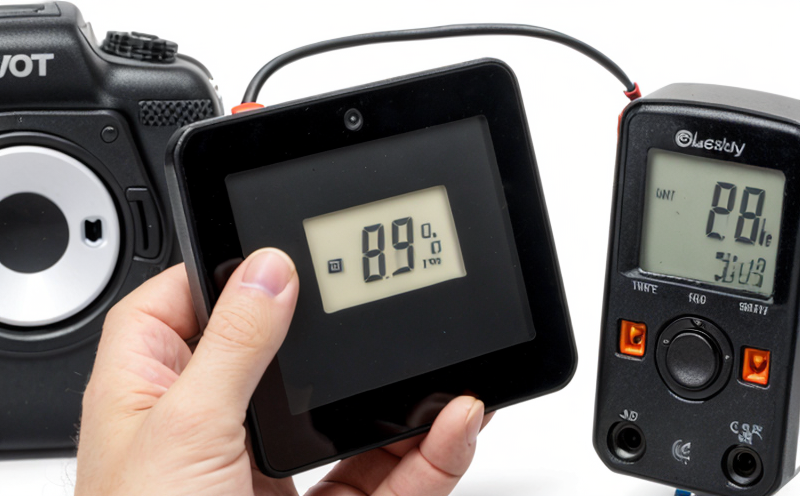NFC Functionality Testing in Consumer Electronics
The Near Field Communication (NFC) technology has revolutionized the way consumers interact with everyday devices. NFC is a form of radio-frequency identification (RFID) that allows for short-range communication between two electronic devices, often used to exchange data or make payments via contactless transactions.
As consumer electronics become more integrated into our daily lives, ensuring the reliability and safety of NFC functionality has never been more critical. This testing service focuses on evaluating the performance of NFC chips in various consumer products such as smartphones, wearables, payment devices, and other small electronic gadgets. We employ state-of-the-art equipment to simulate real-world scenarios that consumers might encounter.
The first step in our NFC functionality test involves understanding the specific requirements set forth by relevant international standards like ISO/IEC 18092:2014 or ASTM F2186-15. These guidelines ensure uniformity and consistency across different markets and manufacturers. Once these parameters are identified, we prepare the specimens according to specified protocols ensuring accurate results.
Our laboratory uses specialized instruments capable of simulating various environmental conditions that may affect NFC signals, including humidity levels, temperature fluctuations, electromagnetic interference (EMI), and more. Our engineers then conduct a series of tests designed to assess several key aspects:
- NFC communication range
- Data transfer rates under different power levels
- Signal strength during tag-reader interactions
- Sensitivity to external electromagnetic fields
- Error rate and error handling mechanisms
- Power consumption during active and passive modes
The results of these tests are meticulously documented and compared against industry benchmarks. Any discrepancies or issues identified are thoroughly investigated and reported back to our clients along with recommendations for improvement where necessary.
In addition to technical performance, we also consider user experience factors such as ease-of-use, interface design, and overall integration within the device's ecosystem. Our goal is not only to meet regulatory requirements but also to enhance customer satisfaction by ensuring seamless NFC experiences across all platforms.
Industry Applications
| Application Area | Description |
|---|---|
| Mobile Payments | Testing NFC capabilities in mobile wallets and payment systems to ensure secure transactions. |
| Smart Wearables | Evaluating NFC integration in fitness trackers, smartwatches, and other wearable tech for health monitoring features. |
| Healthcare Devices | Assessing NFC functionality in medical equipment to support patient identification and data transfer processes. |
| Home Appliances | Verifying NFC connectivity in smart home products like appliances, lighting systems, and security devices. |
Why Choose This Test
Selecting this comprehensive NFC functionality testing service offers several advantages over less robust alternatives. Firstly, it provides a detailed understanding of how your product performs across various environments and conditions which could impact its usability or longevity.
Secondly, by adhering to established standards like ISO/IEC 18092:2014, you demonstrate commitment to quality assurance and regulatory compliance. This can significantly enhance brand reputation among consumers who value safety and reliability in their purchases.
Thirdly, our rigorous testing process helps identify potential flaws early on before they become costly problems during production or post-launch phases. Early detection allows for timely corrections that save time and resources while maintaining product integrity.
Lastly, choosing this service ensures you stay ahead of competitors by offering superior NFC features that align closely with current technological trends and consumer expectations.
Customer Impact and Satisfaction
- Enhances user confidence in the security and reliability of their devices.
- Promotes a positive brand image by showcasing adherence to international standards.
- Aids in meeting legal requirements imposed by different jurisdictions worldwide.
- Facilitates smoother integration into various ecosystems, including payment gateways and healthcare platforms.





